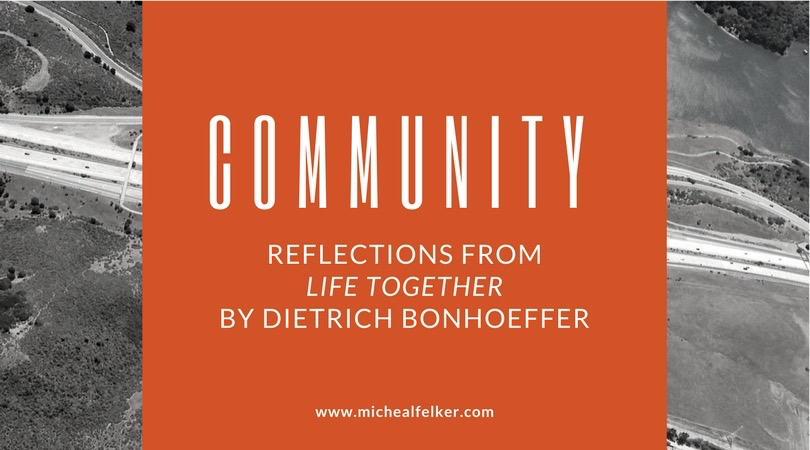
Just War as Christian Discipleship: Recentering the Tradition in the Church Rather Than the State by Daniel M. Bell Jr.
Kindle Edition, 267pages
Published October 1, 2009, Baker Academic
Just War as Christian Discipleship: Recentering the Tradition in the Church Rather Than the State by Daniel M. Bell Jr. serves as a introduction to the history and formation of Just War Tradition as well as a provocative challenge for the Church to recover and faithfully embody the practice of Just War as a part of Christian Formation. Bell attempts to educate the reader on the development of Just War Theory through the writings of the early Patristics (specifically identifying the tradition in Augustinian thought) through the medieval era and into modern times. Bell argues that in the course of history the Just War tradition transitioned from a distinctly Christian doctrine and practice – rooted in and shaped by faithful convictions and communal confessions – into a checklist used by present-day nation-states to develop international laws in order to govern and guide public policy and warfare. Bell argues that Just War principles (authority, just cause, right intent, last resort, and proportionality) are just as applicable, if not more so, to Christian discipleship and formation than they are to the battlefield. In fact, Bell’s purpose in writing this book to the Church is so “that of learning the tradition, teaching it, and living it… Christians might avoid the hypocrisy of claiming to be a just war people when we do not really know what that means.” (18) Bell’s central claim is that in order to wisely judge the morality (or immorality) of current wars and to discern rightly when the rumors of wars begin to swirl, Christians need to access the necessary foundation for intelligent and faithful moral discernment that will lead us, not to declare a particular conflict just or unjust, but to act in accordance with what Christians claim to believe – that God, through His Son, Jesus Christ, is active in this world and calls His church to love even its enemies. This may be accomplished through practices that are both obedient to God and point to the God of “justice, restraint, long-suffering love, mercy, and (who cares) for the common good and will join us in this common good.” Again, Bell is less concerned with declaring particular wars Just and more concerned with developing a peculiar Just War people. Bell challenges his readers to become true disciples and not merely armchair diplomats.
In this review we will briefly summarize the major sections of Bell’s book followed by critical engagement with Bell’s thesis that the main concern for Christians in regards to Just War Theory “is not how to bolster (a) party or platform while discrediting the other side, nor is it steering politicians and public policy in the right direction” but it is most concerned with “how we might wage war (or not) in a manner that points to the One who came that all might have life and have it abundantly. How can we live as faithful disciples of Jesus Christ in the midst of wars and rumors of war? How do we follow Christ by loving and seeking justice for our neighbors in war?” (20) The review will conclude with a practical outworking for how one might apply Bell’s work in the education and discipleship practices of a local church.
Just War as Christian Discipleship can be divided in to two distinct sections. Chapters 1-3 recount the history of Just War theory and how Just War as an act of Christian Discipleship (CD) differs from the modern notion of Just War as a simply a checklist for Public Policy (PPC). Chapters 4- 8 consider traditional Just War criteria to compare and contrast Just War as Christian Discipleship (CD) with Just War as Public Policy Checklist (PPC).
Bell begins by detailing the major players and principles that laid the foundation of the Just War tradition and chronicles how the Church’s official stance on war transitioned from one of complete rejection of force and military service to one of acceptance of force and service in war as morally acceptable or just. Giving much of the credit for this shift to Augustine and Gratian’s Just War theory they described as a type of “harsh kindness” firmly rooted in love. War is “kind” and “harsh” when it’s intended outcome is the complete “restoration of the moral order and of the offender’s proper role in that order.” If Bell believes that the Church is ignorant of the history of the Just War tradition and Christianity’s involvement in its development, these opening chapters provide a comprehensive and compelling primer to bring the church up to speed and help her locate where she is within the current conversation. From here Bell attempts to give evidence that Just War is not “a lesser evil” that, given the fallen nature of humanity, we must resign ourselves to engage (or disengage) from. For Bell, Just War is a genuine possibility if Christians are willing to do the hard work of critical discernment of the mind and the even harder work of Christian character development of the heart. In secular history as well as Church history, this discernment and development declined as the church’s authority and relevance waxed and waned. This resulted in grave injustices (sometimes done in the name of God) and the center of the Just War tradition being shifted to the modern nation-state and international law and away from the community of faith. As the subtile for the book proclaims, it is Bell’s intent that this “ongoing conversation about what it means to love and seek justice for our neighbors in war” be reclaimed and recentered in the Church through Christian reflection on and distinctly a Christian practice of just war.
To do this Bell draws a major distinction between what he calls Just War as an act of Christian Discipleship (CD) and Just War as Public Policy (PPC). This is important work because while many Christians, including many local pastors, might be familiar with terms like “right intent,” “just cause,” and “last resort” these virtuous sounding qualifiers have been completely eviscerated through the secular influence of international law leaving them devoid of any true restorative intentions they may have once had.
Too often Christian thinking, teaching, and preaching about war is shallow and undisciplined, uninformed by the tradition. As a result, what we say about war too easily ends up providing legitimation for anything, for forms of war that do not in fact merit the label “just.” Hence, we end up supporting kinds of warfare that are at odds with the just war tradition, even as we think we are a just war people, simply because we do not know the just war tradition well enough to know when we are being misled. (17)
This is the great challenge that the Church must face today. As church leaders, we may not have an audience with Presidents, Prime Ministers, or members of the high ranking military brass. We may not have the cultural authority we once had in speaking publicly for or against political decisions in ways that directly impact and drive the conversations toward spiritual development. However, there is one place where we do have an audience and authority: we have been given these within the local congregations in which we serve. Our pews and classrooms are full of men and women, military personnel (enlisted and retired) and civilians, young and old alike who read and watch the news. At this writing, our people of faith have, just this week, seen images of civilians suffering the effects of chemical warfare launched by a totalitarian government. They have listened to reactions and statements from the international community and have watched as the US government executed an airstrike against strategic military targets in the wee hours of the night. Many of our people will be listening intently as the pundits and talking heads on cable news run down a list of criteria to determine whether or not this or continued military action is “right” or “justified.” As each each criteria is checked, aggression from the enemy will be met with force meted out by Tomahawk cruise missiles or economic sanctions or other punitive means for deterrence. Most of the discussion though will not center around the moral implications for war and the people it impacts but the political significance for relationships between nation-states, the idealogical approaches to force utilized by Republicans and Democrats, and how action or inaction will play out within the international community. People of faith need more than this from us. The Church was given one mission from Jesus and that was to make disciples who make disciples. Like Esther, church leaders must realize that we were born “for such a time as this.” We have been given authority and influence within our churches so that we might raise up men and women who are faithful disciples in all areas of their lives – including discerning whether or not war is justified and, if it is, how we might engage in war in a way that points to God’s intent for his creation. Working through a checklist will not do – that is to simplistic and does not require enough lasting change on our part or on the part of others. The takeaways or lessons from previous conflicts will be simply forever tied to whether or not the criteria for war was met and not on whether true justice occurred or real peace was pursued and obtained. To this end, Just War as Christian Discipleship is not a book for individual Christians (or individual Christian soldiers) but for the community of Christian faith, The Church as a whole. Just War must be a “practice of a community; it is a matter not of an individual’s but of the community’s reflection and discernment.” If this is the case, then Bell calls those of us who have authority and influence in the church to make two commitments in order to help the community to become Just War people.
First we must Love. The community of faith must learn what it means to Love All and Serve All. That includes the marginalized and the tyrants, the combatants and the civilians, those who are near and those who are far. If we fail to Love than we will be driven to react too quickly or move too slowly because we are motivated by fear or simply a general sense of “duty.” Love is the animating principle that unites our heart, head, and hands to respond appropriately and most reflects Our Father in Heaven.
Secondly, we must seek to be Spiritual Formed more than culturally informed. As we lead the Church to engage God’s Word – as he speaks through His Word and through his faithful servants in the past, we will learn to see the world through the ears of God and grow in our ability to act according to His character. Moving beyond giving lip service to Just War (PCC) principles and proof-texts that “prove” Jesus is for or against particular conflicts is imperative if we are to be formed through the discipline of Just War (CD).
As we listen to the voices that have reflected and discerned these things in the past, we will then struggle to consider and engage in faithful practice today. In doing so, may we challenge the generation of believers that follow us to do the same to Love and Be Formed. Karl Barth famously said, “Take your Bible and take your newspaper, and read both. But interpret newspapers from your Bible.” Only as we are formed into the likeness of Jesus will this even be a possibility.








